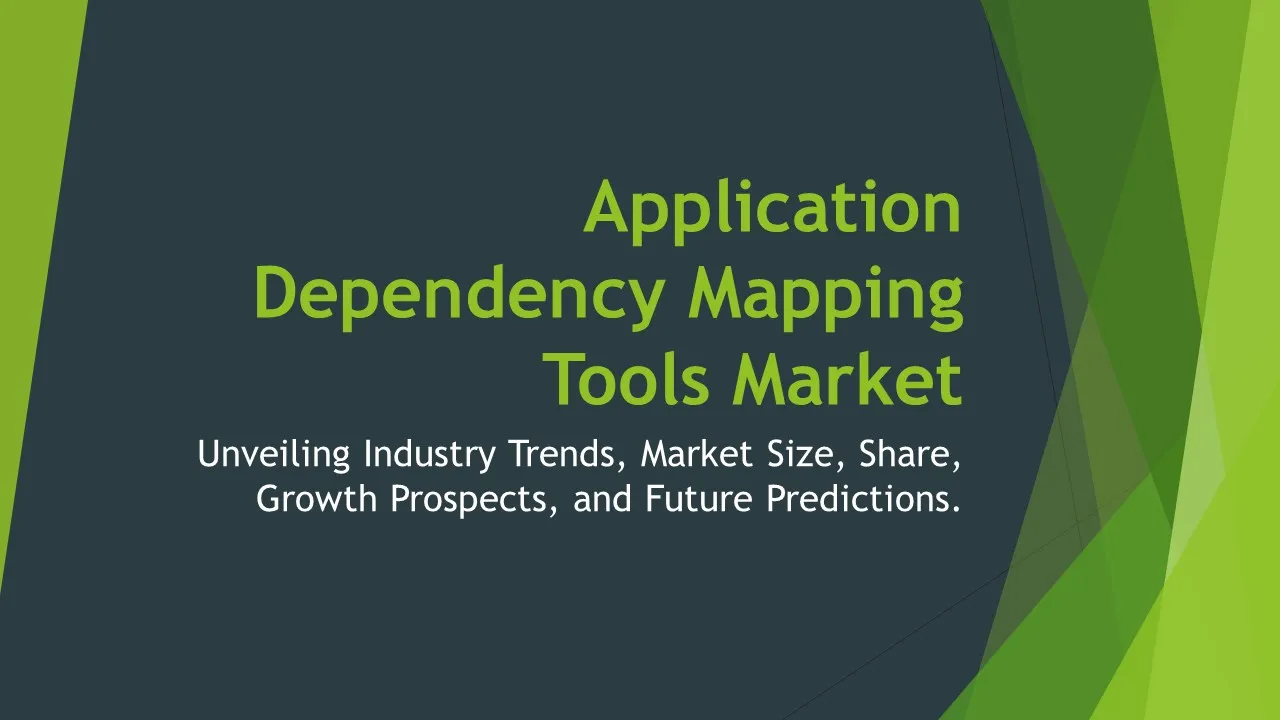Full Life Cycle API Management
Full Life Cycle API Management Market Segments - by Component (API Gateway, API Portal, API Management Software, API Analytics, API Security, API Monetization), Deployment Type (On-premises, Cloud), Organization Size (Small and Medium Enterprises, Large Enterprises), Industry Vertical (IT and Telecommunication, BFSI, Healthcare, Retail, Manufacturing), and Region (North America, Europe, Asia Pacific, Latin America, Middle East & Africa) - Global Industry Analysis, Growth, Share, Size, Trends, and Forecast 2025-2035
- Report Preview
- Table Of Content
- Segments
- Methodology
Full Life Cycle API Management Market Outlook
The global Full Life Cycle API Management market is projected to reach approximately USD 10.5 billion by 2035, growing at a robust CAGR of around 25.3% during the forecast period from 2025 to 2035. The increasing demand for integrating heterogeneous applications and the growing adoption of microservices architecture across various industries are driving this market's growth. Furthermore, the proliferation of mobile and web applications necessitates efficient API management solutions to optimize performance, security, and usability. The rise of digital transformation initiatives in enterprises is also a crucial factor, as organizations seek to create seamless connections between disparate systems, data, and users through APIs. As companies increasingly leverage cloud-based solutions, the need for effective API management to enhance connectivity and enable scalability further supports this market's expansion.
Growth Factor of the Market
The growth of the Full Life Cycle API Management market is primarily attributed to the rapid advancement in technology and the necessity for efficient data exchange between various digital platforms. As organizations aim to improve operational efficiency and customer experiences, they are increasingly resorting to API management solutions to streamline communication between applications. Moreover, the rise in the adoption of Application Programming Interfaces (APIs) in sectors such as e-commerce, healthcare, and financial services has led to a surge in demand for comprehensive API management tools. Enterprises are also keen on leveraging APIs to enable innovation and enhance their digital ecosystems by allowing third-party integrations and partnerships. Furthermore, the growing trend of DevOps and agile methodologies, which emphasize collaboration and flexibility in software development and operations, supports the increasing need for robust API management frameworks that facilitate continuous delivery and integration. Additionally, the expansion of the Internet of Things (IoT) is significantly contributing to the market growth, as numerous connected devices require effective API management strategies for seamless data transmission and communication.
Key Highlights of the Market
- Robust growth projected with a CAGR of 25.3% from 2025 to 2035.
- Increasing adoption of microservices architecture across industries.
- Rising digital transformation initiatives driving API demand.
- Enhanced focus on operational efficiency and customer experience.
- Significant growth in IoT applications necessitating API management.
By Component
API Gateway:
The API Gateway serves as a crucial component in the Full Life Cycle API Management market, acting as a single entry point for all API interactions. It enables various functionalities such as routing, composition, and protocol translation, which are essential for managing diverse application programming interfaces effectively. By providing a centralized management platform, it enhances security and allows for easier monitoring of API usage through analytics. The increasing number of microservices and the demand for real-time data access in various sectors have significantly contributed to the growing adoption of API Gateways. Moreover, the need for seamless integration with third-party applications has made API Gateways vital for organizations seeking to enhance their digital ecosystems. As companies strive to improve system performance and reduce latency, the role of API Gateways becomes increasingly significant in optimizing API interactions and ensuring a smooth user experience.
API Portal:
The API Portal acts as a vital interface that enables developers and external users to access, discover, and utilize the available APIs effectively. This component facilitates API documentation, onboarding, and access management, ensuring that users have the necessary information and tools to integrate APIs into their applications. The growing emphasis on developer experience and the need for self-service capabilities are driving the demand for API Portals. Organizations are increasingly recognizing the importance of providing comprehensive documentation and support to foster innovation and streamline the integration process. As API ecosystems expand, API Portals play a critical role in enabling collaboration between internal development teams and external partners, promoting a culture of shared innovation. Furthermore, API Portals often include analytics and monitoring features that help organizations track usage patterns and identify potential bottlenecks in the development process, thereby enhancing operational efficiency.
API Management Software:
API Management Software encompasses a wide range of tools and applications designed to facilitate the creation, deployment, and management of APIs throughout their entire lifecycle. This software typically includes functionalities such as version control, monitoring, security, and analytics, allowing organizations to maintain robust API ecosystems. The increasing complexity of API management due to the rise of microservices and cloud-native architectures has led to a heightened demand for sophisticated API Management Software solutions. These tools enable organizations to manage APIs efficiently, ensuring compliance with security protocols while optimizing performance. As businesses seek to enhance their digital offerings and engage more effectively with customers, API Management Software has become an essential component of their technology stacks. The trend towards low-code and no-code development environments is also contributing to the growth of this segment, as organizations require tools that enable rapid API development and deployment without extensive coding knowledge.
API Analytics:
API Analytics is an essential component that provides organizations with the insights and data necessary to optimize their API performance. By analyzing API usage patterns, response times, and error rates, organizations can make data-driven decisions to enhance their API offerings. This segment of the market is witnessing substantial growth due to the increasing demand for performance monitoring and optimization tools. Organizations are realizing that having access to comprehensive analytics enables them to identify usage trends, detect anomalies, and understand user behavior, which in turn helps improve user experiences and drive engagement. As APIs become integral to business operations, the ability to track and analyze API performance is critical in maintaining competitive advantages. Furthermore, API Analytics often integrates with other components such as API Gateways and Management Software to provide a holistic view of the entire API lifecycle, enabling organizations to respond proactively to performance issues and enhance overall system efficiency.
API Security:
API Security is an increasingly important aspect of Full Life Cycle API Management, as the proliferation of APIs has also led to heightened cybersecurity risks. Organizations are investing in API Security solutions to protect their sensitive data and prevent unauthorized access to their systems. This component includes various measures such as authentication, authorization, encryption, and threat detection to ensure the integrity and confidentiality of API transactions. As more organizations migrate to cloud-based solutions and embrace digital transformation, the complexity of API security challenges continues to grow. Consequently, the demand for robust API security solutions is on the rise, as companies seek to safeguard their APIs against potential threats. Additionally, regulatory compliance mandates in sectors such as finance and healthcare further emphasize the critical need for strong API security measures. By implementing effective API security protocols, organizations can not only protect their data but also build trust with their customers and partners, ensuring a secure and reliable API environment.
API Monetization:
API Monetization refers to the strategies and practices that organizations employ to generate revenue from their APIs. As businesses increasingly recognize the value of their data and services, the need for effective API monetization strategies is becoming more prominent. This component allows organizations to create new revenue streams by offering API access to external developers, partners, or customers. The growth of API monetization is driven by the rise of digital ecosystems, where data sharing and collaboration among various stakeholders play a vital role in driving innovation. By implementing monetization models, such as pay-per-use, subscription-based access, or tiered pricing, organizations can capitalize on their API investments. Furthermore, API monetization not only provides financial benefits but also encourages the development of a vibrant developer community, fostering collaboration and innovation. As APIs continue to play a crucial role in the digital economy, organizations are increasingly focusing on monetization strategies to leverage their assets effectively.
By Deployment Type
On-premises:
The On-premises deployment model for Full Life Cycle API Management solutions offers organizations greater control over their API environments, enabling them to customize their infrastructures according to specific requirements. Many enterprises prefer this model due to its perceived security advantages, as sensitive data and applications reside within their own data centers. This deployment type allows organizations to enforce stringent security protocols and compliance measures, which is particularly important in regulated industries such as finance and healthcare. The ability to manage hardware and software resources in-house can also lead to improved performance and reduced latency for API interactions, driving better user experiences. However, the on-premises model requires significant upfront investments in infrastructure and ongoing maintenance costs, which may deter smaller organizations from adopting this approach. As companies increasingly recognize the benefits of cloud-based solutions, some are exploring hybrid models that combine on-premises capabilities with cloud flexibility.
Cloud:
The Cloud deployment model for Full Life Cycle API Management is witnessing rapid adoption due to its scalability, flexibility, and cost-effectiveness. Organizations can leverage cloud-based API management solutions to quickly deploy and scale their APIs without the burden of managing physical infrastructure. This model is particularly attractive for businesses that experience fluctuating workloads, as cloud solutions can easily accommodate varying API traffic demands. Additionally, cloud-based deployments often provide built-in security features and compliance certifications, significantly reducing the risks associated with API management. The growing trend of remote work and distributed teams further supports the shift towards cloud deployments, as these solutions enable seamless collaboration and access to APIs from anywhere. Furthermore, the ability to integrate with other cloud services and third-party applications enhances the overall functionality and usability of cloud-based API management solutions, making them an appealing choice for organizations in diverse industries.
By Organization Size
Small and Medium Enterprises:
Small and Medium Enterprises (SMEs) are increasingly adopting Full Life Cycle API Management solutions as they seek to enhance their operational efficiencies and compete in the digital marketplace. For SMEs, APIs provide an avenue to integrate various applications and services, allowing them to streamline processes and improve customer engagement without significant investments in infrastructure. Additionally, many SMEs are leveraging cloud-based API management solutions, which offer affordable and scalable options that align with their budgets and resource constraints. The growing trend of digital transformation among SMEs is driving the demand for API management tools, as these organizations aim to enhance their service offerings and improve collaboration with partners and third-party developers. As competition intensifies in various sectors, SMEs increasingly recognize the value of effective API management in driving innovation and ensuring their growth in the digital economy.
Large Enterprises:
Large Enterprises are at the forefront of adopting Full Life Cycle API Management solutions as they seek to maintain their competitive edge and drive digital transformation initiatives. With complex IT environments and vast amounts of data, large organizations require robust API management frameworks to ensure seamless integration between diverse systems, applications, and platforms. The need for scalability, security, and governance in managing APIs becomes critical for large enterprises, making comprehensive API management solutions indispensable. Furthermore, as these organizations often engage in various partnerships and collaborations, effective API management enables them to foster innovation and maximize the value of their data assets. The growing emphasis on customer experience and the need for agile responses to market changes are also pushing large enterprises to invest heavily in API management tools. As they continue to expand their digital ecosystems, large organizations recognize the importance of effective API management in driving efficiency, collaboration, and revenue growth.
By Industry Vertical
IT and Telecommunication:
The IT and Telecommunication sector is one of the primary adopters of Full Life Cycle API Management solutions, driven by the need for seamless integration and efficient communication between various applications and services. As these organizations handle vast amounts of data and numerous interconnected systems, effective API management is crucial for ensuring optimal performance and security. API management solutions enable IT and telecommunications companies to provide enhanced services and features to their customers, such as real-time data access and improved connectivity. Furthermore, the rise of 5G technology is accelerating the demand for API management tools, as businesses look to capitalize on the opportunities presented by next-generation networks. The ability to quickly deploy and scale APIs to support new services and applications is essential in this competitive landscape, prompting IT and telecommunications companies to invest in comprehensive API management frameworks.
BFSI:
The Banking, Financial Services, and Insurance (BFSI) sector is increasingly embracing Full Life Cycle API Management solutions to enhance operational efficiency and improve customer experiences. APIs play a pivotal role in enabling secure data sharing and integration between various financial applications, allowing organizations to streamline processes such as payments, account management, and fraud detection. As regulatory compliance becomes more stringent, effective API management solutions help BFSI organizations maintain governance and security while ensuring a seamless user experience. The growing trend of fintech partnerships further drives the demand for API management tools, as traditional financial institutions seek to collaborate with innovative startups to offer enhanced services. Additionally, the increased focus on digital banking and mobile applications is pushing BFSI organizations to adopt robust API management frameworks that can handle high volumes of transactions while maintaining security and compliance.
Healthcare:
The Healthcare industry is experiencing a significant transformation driven by the adoption of Full Life Cycle API Management solutions. With the increasing need for interoperable systems, healthcare organizations are leveraging APIs to facilitate secure data exchange between electronic health records (EHRs), health information systems, and third-party applications. Effective API management enables healthcare providers to enhance patient care by improving access to real-time data, streamlining workflows, and enabling interoperability among disparate systems. Furthermore, the growing emphasis on patient-centric care and the demand for telemedicine solutions are accelerating the adoption of API management tools in this sector. As regulatory compliance and data security are paramount in healthcare, implementing robust API management frameworks helps organizations safeguard sensitive patient information while enabling innovation in service delivery. The increasing use of wearable devices and health monitoring applications is also driving the demand for effective API management in the healthcare industry, as these technologies rely on seamless data integration to function effectively.
Retail:
The Retail sector is increasingly adopting Full Life Cycle API Management solutions to enhance customer experiences and streamline operations in an increasingly competitive landscape. APIs enable retailers to integrate various systems, such as inventory management, e-commerce platforms, and point-of-sale systems, allowing for a seamless omnichannel experience for customers. Effective API management helps retailers harness data from multiple touchpoints to gain valuable insights into customer behavior, preferences, and purchasing patterns. This information enables retailers to personalize their marketing efforts and improve customer engagement. Additionally, the rise of mobile shopping and the need for secure payment processing are driving the demand for API management tools in the retail industry. As retailers strive to enhance their digital offerings and adapt to changing consumer expectations, the implementation of robust API management frameworks becomes essential for maintaining competitive advantages and driving growth.
Manufacturing:
The Manufacturing sector is increasingly recognizing the importance of Full Life Cycle API Management solutions to optimize operations and enhance productivity. As manufacturers adopt Industry 4.0 principles and IoT technologies, the need for effective API management becomes paramount to facilitate seamless communication between machines, sensors, and applications. APIs enable manufacturers to integrate data from various sources, allowing for real-time monitoring, predictive maintenance, and improved supply chain management. Furthermore, effective API management solutions can enhance collaboration with suppliers and partners, enabling manufacturers to create more agile and responsive production processes. The growing emphasis on data-driven decision-making is also driving the adoption of API management tools in manufacturing, as organizations seek to leverage data analytics to improve operational efficiency and reduce costs. As the manufacturing landscape continues to evolve with digital transformation initiatives, implementing comprehensive API management frameworks will be crucial for organizations to stay competitive and drive innovation.
By Region
The North America region is expected to dominate the Full Life Cycle API Management market, accounting for approximately 40% of the global market share by 2035. This dominance can be attributed to the presence of major technology companies, a strong focus on digital transformation initiatives, and a well-established infrastructure for cloud services. Furthermore, the growing adoption of APIs in sectors such as BFSI, healthcare, and retail is driving the demand for API management solutions in this region. North America is also witnessing significant investments in cybersecurity and regulatory compliance, which further fuels the growth of API management tools as organizations seek to protect sensitive data. With a projected CAGR of 28% during the forecast period, the North American market is poised for significant expansion as enterprises increasingly recognize the value of efficient API management.
In Europe, the Full Life Cycle API Management market is expected to hold a substantial share, accounting for approximately 30% of the global market by 2035. The region's emphasis on regulatory compliance, particularly with data protection laws such as GDPR, is driving the demand for robust API management solutions. Organizations across various industries are increasingly focused on ensuring secure data sharing while maintaining compliance with stringent regulations. Additionally, the growing trend of digitalization in sectors such as healthcare, retail, and manufacturing is contributing to the rising adoption of API management tools in Europe. As businesses seek to innovate and enhance customer experiences, the European market is expected to witness a CAGR of 24% during the forecast period. The emphasis on collaboration and partnerships among organizations in Europe further fuels the need for effective API management solutions.
Opportunities
The Full Life Cycle API Management market is rife with opportunities as organizations across various sectors continue to invest in digital transformation initiatives. One of the key opportunities lies in the increasing adoption of cloud-based solutions, which allow organizations to scale their API management capabilities without the burden of managing physical infrastructure. As businesses recognize the benefits of flexibility and cost-effectiveness associated with cloud deployments, the demand for comprehensive cloud-based API management solutions is expected to surge. Additionally, the rise of open APIs and developer communities presents an opportunity for organizations to foster innovation and collaboration through seamless integrations. By enabling third-party developers to leverage their APIs, companies can create new revenue streams and enhance their service offerings. Furthermore, the ongoing advancements in artificial intelligence and machine learning are anticipated to revolutionize API management, providing organizations with advanced analytics and automation capabilities that can drive efficiency and improve decision-making processes.
Another significant opportunity lies in the growing emphasis on security and compliance in the API management landscape. As organizations grapple with increasing cyber threats and stringent regulatory requirements, there is a heightened demand for robust API security solutions. Companies that can offer innovative security features and compliance tools will find substantial growth opportunities in this market. Furthermore, industries such as healthcare, finance, and telecommunications are increasingly focusing on interoperability and data sharing, creating a demand for API management solutions that can facilitate secure and efficient integrations. As these industries continue to evolve, organizations that can position themselves as leaders in API management and security will be well-positioned to capitalize on the growing market demand.
Threats
Despite the numerous opportunities, the Full Life Cycle API Management market faces certain threats that could impact its growth trajectory. One of the primary threats is the increasing complexity of API management as organizations adopt diverse technologies and platforms. As the number of APIs continues to proliferate, managing their performance, security, and compliance becomes increasingly challenging. Organizations may struggle to maintain control over their APIs, leading to potential security vulnerabilities and data breaches. Additionally, the rapid pace of technological advancements necessitates continuous updates and improvements in API management solutions, which can strain resources and budgets for some companies. Furthermore, the competitive landscape is becoming more crowded, with a growing number of players entering the market. This intensifying competition could lead to price wars and reduced profit margins for established players, challenging their sustainability in the long run.
Another significant threat to the Full Life Cycle API Management market is the evolving regulatory landscape. Organizations must navigate complex and ever-changing data privacy and security regulations, which can create compliance challenges and increase operational costs. The potential for non-compliance can lead to severe penalties and reputational damage, forcing organizations to invest heavily in compliance measures. Additionally, as APIs become more critical to business operations, the risk of cyberattacks targeting APIs has increased significantly. Organizations must remain vigilant and proactive in implementing security measures to protect their APIs from potential threats. Failure to address these security concerns could result in significant financial losses and damage to brand reputation, jeopardizing the overall growth of the API management market.
Competitor Outlook
- Google Cloud Apigee
- Microsoft Azure API Management
- IBM API Connect
- Amazon API Gateway
- Oracle API Platform Cloud Service
- MuleSoft Anypoint Platform
- WSO2 API Manager
- Axway API Management
- Red Hat 3scale API Management
- Software AG webMethods
- SAP API Management
- Postman
- Tyk API Gateway
- Kong Gateway
- DreamFactory Software
The competitive landscape of the Full Life Cycle API Management market is characterized by a mix of established players and emerging startups, each vying for market share through innovation and differentiation. Major companies such as Google Cloud Apigee, Microsoft Azure API Management, and IBM API Connect dominate the market due to their comprehensive offerings, advanced capabilities, and strong brand presence. These companies invest heavily in research and development to enhance their API management solutions, providing customers with robust tools for managing APIs throughout their entire lifecycle. The ability to integrate seamlessly with other cloud services and platforms is a key differentiator for these players, enabling organizations to streamline their API management processes and improve overall operational efficiency. Moreover, these established players often benefit from extensive partnerships and collaborations, expanding their reach and strengthening their market position.
Emerging companies, such as Tyk API Gateway and Postman, are also making significant strides in the market by focusing on niche segments and providing innovative solutions that cater to specific customer needs. These companies are leveraging advancements in technology, such as artificial intelligence and machine learning, to enhance their API management offerings, providing customers with advanced analytics and automation capabilities that drive efficiency. The growing trend of open-source solutions has further enabled smaller players to compete with established giants, allowing organizations to customize their API management frameworks according to their unique requirements. As a result, the competitive landscape is evolving rapidly, with companies continuously striving to enhance their offerings and capture market share.
As the Full Life Cycle API Management market continues to expand, major players are actively seeking strategic partnerships, acquisitions, and collaborations to bolster their capabilities and enhance their product portfolios. Companies like MuleSoft and Axway have successfully integrated their API management solutions with complementary technologies, providing customers with comprehensive tools that streamline digital transformation initiatives. This trend toward consolidation is expected to continue, as organizations seek to leverage synergies and enhance their competitive advantages. Furthermore, the increasing emphasis on security and compliance in the API management space is driving companies to invest in advanced security solutions, ensuring that their offerings meet the evolving needs of organizations across various industries. As the market matures, companies that can provide innovative, secure, and scalable API management solutions will be well-positioned to thrive in this dynamic landscape.
1 Appendix
- 1.1 List of Tables
- 1.2 List of Figures
2 Introduction
- 2.1 Market Definition
- 2.2 Scope of the Report
- 2.3 Study Assumptions
- 2.4 Base Currency & Forecast Periods
3 Market Dynamics
- 3.1 Market Growth Factors
- 3.2 Economic & Global Events
- 3.3 Innovation Trends
- 3.4 Supply Chain Analysis
4 Consumer Behavior
- 4.1 Market Trends
- 4.2 Pricing Analysis
- 4.3 Buyer Insights
5 Key Player Profiles
- 5.1 Postman
- 5.1.1 Business Overview
- 5.1.2 Products & Services
- 5.1.3 Financials
- 5.1.4 Recent Developments
- 5.1.5 SWOT Analysis
- 5.2 Kong Gateway
- 5.2.1 Business Overview
- 5.2.2 Products & Services
- 5.2.3 Financials
- 5.2.4 Recent Developments
- 5.2.5 SWOT Analysis
- 5.3 IBM API Connect
- 5.3.1 Business Overview
- 5.3.2 Products & Services
- 5.3.3 Financials
- 5.3.4 Recent Developments
- 5.3.5 SWOT Analysis
- 5.4 Tyk API Gateway
- 5.4.1 Business Overview
- 5.4.2 Products & Services
- 5.4.3 Financials
- 5.4.4 Recent Developments
- 5.4.5 SWOT Analysis
- 5.5 WSO2 API Manager
- 5.5.1 Business Overview
- 5.5.2 Products & Services
- 5.5.3 Financials
- 5.5.4 Recent Developments
- 5.5.5 SWOT Analysis
- 5.6 Amazon API Gateway
- 5.6.1 Business Overview
- 5.6.2 Products & Services
- 5.6.3 Financials
- 5.6.4 Recent Developments
- 5.6.5 SWOT Analysis
- 5.7 SAP API Management
- 5.7.1 Business Overview
- 5.7.2 Products & Services
- 5.7.3 Financials
- 5.7.4 Recent Developments
- 5.7.5 SWOT Analysis
- 5.8 Google Cloud Apigee
- 5.8.1 Business Overview
- 5.8.2 Products & Services
- 5.8.3 Financials
- 5.8.4 Recent Developments
- 5.8.5 SWOT Analysis
- 5.9 Axway API Management
- 5.9.1 Business Overview
- 5.9.2 Products & Services
- 5.9.3 Financials
- 5.9.4 Recent Developments
- 5.9.5 SWOT Analysis
- 5.10 DreamFactory Software
- 5.10.1 Business Overview
- 5.10.2 Products & Services
- 5.10.3 Financials
- 5.10.4 Recent Developments
- 5.10.5 SWOT Analysis
- 5.11 Software AG webMethods
- 5.11.1 Business Overview
- 5.11.2 Products & Services
- 5.11.3 Financials
- 5.11.4 Recent Developments
- 5.11.5 SWOT Analysis
- 5.12 MuleSoft Anypoint Platform
- 5.12.1 Business Overview
- 5.12.2 Products & Services
- 5.12.3 Financials
- 5.12.4 Recent Developments
- 5.12.5 SWOT Analysis
- 5.13 Red Hat 3scale API Management
- 5.13.1 Business Overview
- 5.13.2 Products & Services
- 5.13.3 Financials
- 5.13.4 Recent Developments
- 5.13.5 SWOT Analysis
- 5.14 Microsoft Azure API Management
- 5.14.1 Business Overview
- 5.14.2 Products & Services
- 5.14.3 Financials
- 5.14.4 Recent Developments
- 5.14.5 SWOT Analysis
- 5.15 Oracle API Platform Cloud Service
- 5.15.1 Business Overview
- 5.15.2 Products & Services
- 5.15.3 Financials
- 5.15.4 Recent Developments
- 5.15.5 SWOT Analysis
- 5.1 Postman
6 Market Segmentation
- 6.1 Full Life Cycle API Management Market, By Deployment Type
- 6.1.1 On-premises
- 6.1.2 Cloud
- 6.2 Full Life Cycle API Management Market, By Industry Vertical
- 6.2.1 IT and Telecommunication
- 6.2.2 BFSI
- 6.2.3 Healthcare
- 6.2.4 Retail
- 6.2.5 Manufacturing
- 6.3 Full Life Cycle API Management Market, By Organization Size
- 6.3.1 Small and Medium Enterprises
- 6.3.2 Large Enterprises
- 6.1 Full Life Cycle API Management Market, By Deployment Type
7 Competitive Analysis
- 7.1 Key Player Comparison
- 7.2 Market Share Analysis
- 7.3 Investment Trends
- 7.4 SWOT Analysis
8 Research Methodology
- 8.1 Analysis Design
- 8.2 Research Phases
- 8.3 Study Timeline
9 Future Market Outlook
- 9.1 Growth Forecast
- 9.2 Market Evolution
10 Geographical Overview
- 10.1 Europe - Market Analysis
- 10.1.1 By Country
- 10.1.1.1 UK
- 10.1.1.2 France
- 10.1.1.3 Germany
- 10.1.1.4 Spain
- 10.1.1.5 Italy
- 10.1.1 By Country
- 10.2 Asia Pacific - Market Analysis
- 10.2.1 By Country
- 10.2.1.1 India
- 10.2.1.2 China
- 10.2.1.3 Japan
- 10.2.1.4 South Korea
- 10.2.1 By Country
- 10.3 Latin America - Market Analysis
- 10.3.1 By Country
- 10.3.1.1 Brazil
- 10.3.1.2 Argentina
- 10.3.1.3 Mexico
- 10.3.1 By Country
- 10.4 North America - Market Analysis
- 10.4.1 By Country
- 10.4.1.1 USA
- 10.4.1.2 Canada
- 10.4.1 By Country
- 10.5 Middle East & Africa - Market Analysis
- 10.5.1 By Country
- 10.5.1.1 Middle East
- 10.5.1.2 Africa
- 10.5.1 By Country
- 10.6 Full Life Cycle API Management Market by Region
- 10.1 Europe - Market Analysis
11 Global Economic Factors
- 11.1 Inflation Impact
- 11.2 Trade Policies
12 Technology & Innovation
- 12.1 Emerging Technologies
- 12.2 AI & Digital Trends
- 12.3 Patent Research
13 Investment & Market Growth
- 13.1 Funding Trends
- 13.2 Future Market Projections
14 Market Overview & Key Insights
- 14.1 Executive Summary
- 14.2 Key Trends
- 14.3 Market Challenges
- 14.4 Regulatory Landscape
Segments Analyzed in the Report
The global Full Life Cycle API Management market is categorized based on
By Deployment Type
- On-premises
- Cloud
By Organization Size
- Small and Medium Enterprises
- Large Enterprises
By Industry Vertical
- IT and Telecommunication
- BFSI
- Healthcare
- Retail
- Manufacturing
By Region
- North America
- Europe
- Asia Pacific
- Latin America
- Middle East & Africa
Key Players
- Google Cloud Apigee
- Microsoft Azure API Management
- IBM API Connect
- Amazon API Gateway
- Oracle API Platform Cloud Service
- MuleSoft Anypoint Platform
- WSO2 API Manager
- Axway API Management
- Red Hat 3scale API Management
- Software AG webMethods
- SAP API Management
- Postman
- Tyk API Gateway
- Kong Gateway
- DreamFactory Software
- Publish Date : Jan 21 ,2025
- Report ID : IT-69384
- No. Of Pages : 100
- Format : |
- Ratings : 4.5 (110 Reviews)
Related reports









